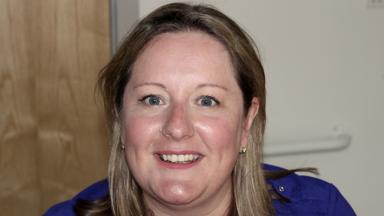Improving interface working across primary and secondary care
We are committed to supporting leaders to deliver impactful improvement work to respond to national and local challenges.
As pressures and demands continue to increase for both primary and secondary care, there is a need for teams to work together, both on shared issues, as well as to improve the overall interface between the two sectors. This is critical for improving care, experience and outcomes for patients as well as managing operational challenges, processes and relationships.
Through this new project starting in April 2024, we will be working closely with healthcare professionals over a ten month period to co-create and design innovative approaches to overcome challenges around interface working between primary and secondary care within your local areas.
The development programme
Working as part of a dedicated cohort of colleagues, you will be supported to explore the problem that you are interested in overcoming, understand the data, test out ideas, and go through a process of learning and monitoring, before implementing your improvements and spreading and sustaining the outputs.
This will be a safe space to collaborate, learn and share practice with peers across the country who are trying to achieve the same outcome. Using improvement methodology and building on relationships across the interface, you will gain the tools to tackle complex problems that impact on patient care, being guided by our range of resources, publications and webinars, as well as practical guidance to apply your learning locally.
As well as the support of our own in-house team, the improvement programme will be facilitated by Dr Chris Pickering, an emergency department consultant and Dr Jon Griffiths, a GP and associate medical director for primary care. For more details of the team please see below.
Areas of focus
As part of the application, you will be asked to outline the problem you want to improve through interface working. A detailed report outlining improvement ideas that you might want to explore can be found in this Academy of Medical Royal Colleges report.
The problem area should be something that both primary and secondary care want to improve. It should be realistic to address some part of it in a 10 month time period.
Improvement areas
Some examples of problem areas you might want to address are:
- Waiting lists and improving access
- Reducing waste (such as duplication, extra processing or waiting)
- Admission and attendance management
- Referral processes and diagnostics
- Workforce
Course outline
You will benefit from a structured course of resources, publications, webinars and learning sessions focused on improvement methodology. All of the sessions will be delivered remotely, with the details as follows:
- Session one: Problem scoping, relationship building, culture, and an introduction to measurement. (10:00-12:30, 29 April 2024)
- Session two: Measurement, discovering routes to impactful change, and planning. (13:00-15:30, 4 June 2024)
- Session three: Testing efficacy and the potential for change, making tweaks, and tracking improvement. (10:00-12:30, 8 August 2024)
- Session four: Continuing the theme of testing, tweaking and tracking. (10:00-12:30, 8 October 2024)
- Session five: Spreading innovation and ensuring sustainability, celebration, and reflections on learning. (10:00-12:30, 27 November 2024)
How to apply
Applications for the first cohort are now closed.
Teams that applied to be part of the initial collaborative will be contacted in due course.
We hope to launch a second round of applications in 2025, with details to be confirmed at a later date.
For any questions regarding the programme or the application process, please feel free to contact either:
- sonia.nosheen@nhsconfed.org from our Acute Network, or
- rebecca.gale@nhsconfed.org from our Primary Care Network.










